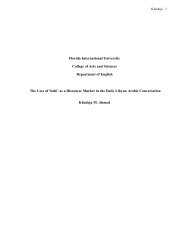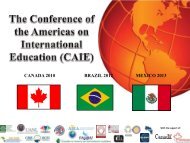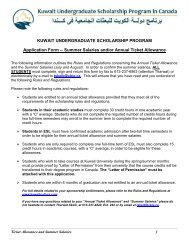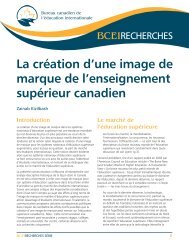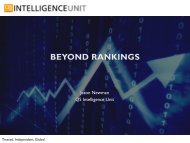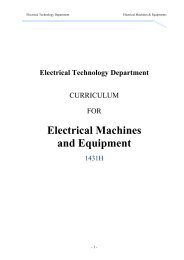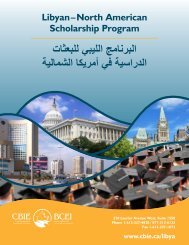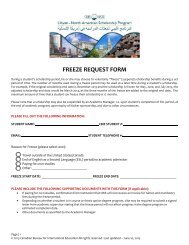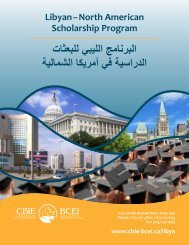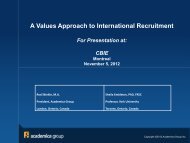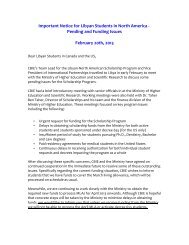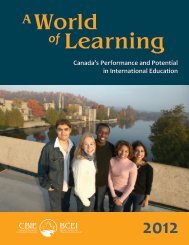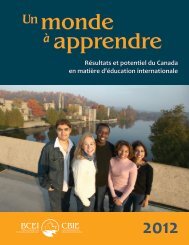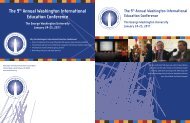Creating a New Historical Perspective: EU and the Wider World ...
Creating a New Historical Perspective: EU and the Wider World ...
Creating a New Historical Perspective: EU and the Wider World ...
Create successful ePaper yourself
Turn your PDF publications into a flip-book with our unique Google optimized e-Paper software.
2 Assessment<br />
methods<br />
Presentations: oral (power point) <strong>and</strong> written; examinations:<br />
oral for <strong>the</strong> conceptual parts; written for <strong>the</strong> basic<br />
historiographical knowledge; students keep a portfolio.<br />
E<br />
1<br />
2<br />
Programme competences<br />
Generic<br />
— Critical <strong>and</strong> self-critical abilities: ability to think in scientific terms, pose<br />
problems, ga<strong>the</strong>r data, analyse <strong>the</strong>m <strong>and</strong> propose findings.<br />
— Written <strong>and</strong> oral communication in one’s own language: ability to write <strong>and</strong><br />
speak correctly according to <strong>the</strong> various communication registers (informal,<br />
formal, scientific).<br />
— Ability to work autonomously, taking initiatives <strong>and</strong> managing time: ability<br />
to organise complex efforts over a period of time, producing <strong>the</strong> required<br />
result on schedule.<br />
— Ability to work with o<strong>the</strong>rs in a multidisciplinary multi-national setting.<br />
Subject specific<br />
— Basic general knowledge: orientation in <strong>the</strong> major <strong>the</strong>mes of present historical<br />
debate <strong>and</strong> knowledge of world chronology.<br />
— Applying knowledge in practice: ability to use background information <strong>and</strong><br />
information retrieval skills to formulate a coherent discussion of a historical<br />
problem.<br />
— Awareness of <strong>the</strong> on-going nature of historical research <strong>and</strong> debate<br />
— Awareness of <strong>the</strong> connections between present-day issues <strong>and</strong> <strong>the</strong> past<br />
— Knowledge of <strong>the</strong> general diachronic framework of <strong>the</strong> past<br />
— Specific knowledge of <strong>the</strong> chronologies <strong>and</strong> historiographical interpretations<br />
of colonisation, decolonisation, modernity, post-modernity <strong>and</strong> globalisation.<br />
— Knowledge of at least one specific <strong>the</strong>matic area (international relations, economic<br />
history, history of ideas, gender history, history of science <strong>and</strong> technology,<br />
etc.).<br />
— Ability to retrieve <strong>and</strong> h<strong>and</strong>le information from a variety of sources (electronic,<br />
written, archival, oral) as appropriate to <strong>the</strong> problem, integrating it<br />
critically into a grounded narrative<br />
— Ability to use <strong>the</strong> appropriate terminology <strong>and</strong> modes of expression of <strong>the</strong><br />
discipline in oral <strong>and</strong> written form in one’s own language <strong>and</strong> in <strong>the</strong> second<br />
language.<br />
59



